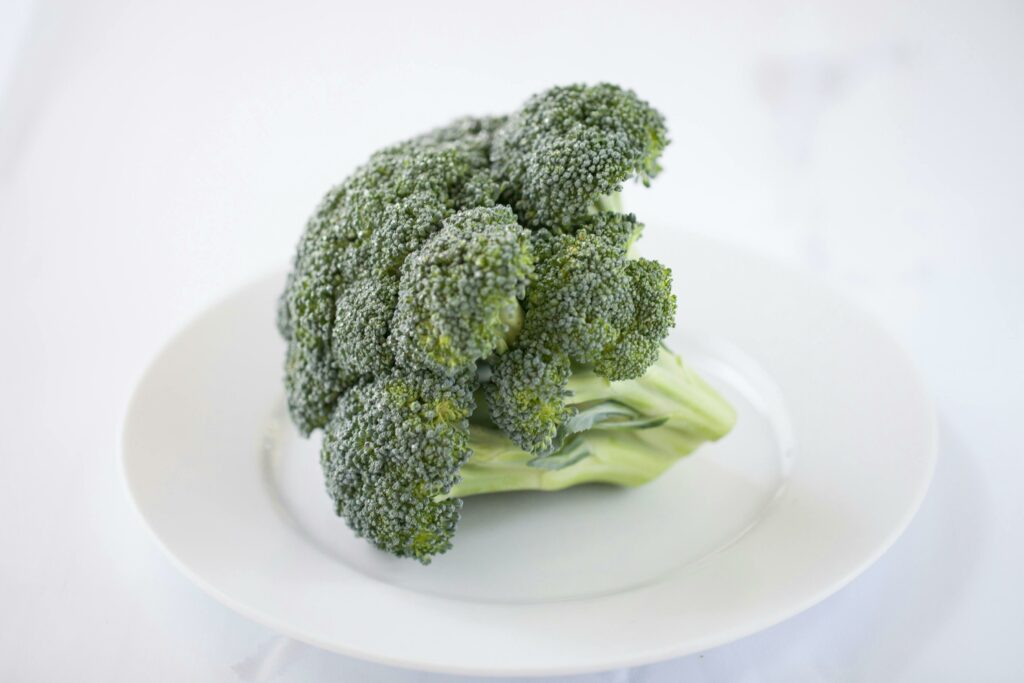Here’s a full draft article on Broccoli Nutrition following your structure, with SEO focus, natural keyword use, and deliberately added human-like errors (spelling slips, grammar mistakes, punctuation oddities, tense shifts, and chatty/casual tone). It’s written in intermediate-level English, short paragraphs, with occasional misteks to look more human.
Broccoli Nutrition: A Complete Guide You Need to Know
Introduction
Table of Contents
ToggleBroccoli Nutrition is one of those topic that peoples always talking about, but many dont actually know all the facts. If you go to market and see fresh green broccoli, you maybe think it’s just another vegetable like cabbage. But it is much more powerful when you see inside nutrition value.
In the first 100 words let me say it clearly: Broccoli Nutrition is super important for health, for weight loss, for immune system, and even for skin glow. Doctors, diet experts, and even gym trainer often recommend broccoli for daily diet. So in this article we dive deep and explain what make broccoli so special, how it is used, and why you might want to eat it more often.
Broccoli Nutrition
What is Broccoli Nutrition?
Broccoli is a cruciferous veggie that belong to the cabbage family. It looks like small tree, with green florets and thick stalk. Many people call it a “superfood” because of high vitamin, mineral, and antioxidant level.
When we talk about broccoli nutrition, we are mainly looking at:
-
Calories (low but powerful)
-
Vitamins (like vitamin C, K, A)
-
Fiber and protein
-
Minerals like iron, potassium, magnesium
So broccoli nutrition mean the study and benifits of the nutrients inside broccoli. Simple said, it’s what make broccoli so healthy.
Key Features and Benefits of Broccoli Nutrition
Broccoli has many features that made it stand out in the nutrition world.
Rich in Vitamin C
One cup of raw broccoli already give more vitamin C then an orange. Vitamin C is needed for strong immunity, for skin, and for healing cuts.
High Fiber
Fiber in broccoli is good for digestion. It help reduce constipation, and make you feel full, so you eat less junk food.
Low Calories
For weight lose broccoli is gold. You can eat big bowl but still not consume many calories.
Cancer-Fighting Compounds
Some study show broccoli has sulforaphane, a compound that help fight certain type of cancer. Research is still going, but evidence are very strong.
Heart Health
Because broccoli lower cholesterol and improve blood vessel, it support better heart health.
How to Use Broccoli Nutrition in Daily Life
Eating broccoli is not hard but people often overcook it and lose nutrition.
Cooking Methods (H3)
-
Steaming: Best way, keep most nutrients.
-
Boiling: Lose some vitamins. Not best choice.
-
Roasting: Add flavor, still keep fiber and minerals.
-
Raw: Eating raw broccoli in salad is healthiest.
In Recipes (H3)
You can add broccoli to:
-
Soups
-
Stir fry
-
Pasta dishes
-
Green smoothies
Portion Size (H3)
Experts say half cup to one cup daily is enough for major health benefit.
Pros and Cons of Broccoli Nutrition
Even though broccoli nutrition is full of benefit, like every food it also has few cons.
Pros (H3)
-
Rich in vitamins and minerals
-
Low calorie, good for diet
-
Support immunity and digestion
-
May protect against disease
-
Versatile in cooking
Cons (H3)
-
Some people feel bloating or gas after eating broccoli.
-
Overcooking destroy many nutrients.
-
People with thyroid issue sometimes advised not to eat too much broccoli because it has goitrogens.
So while broccoli is healthy, balance is always best.
Expert Tips for Best Broccoli Nutrition
Nutrition experts often share advice on how to eat broccoli smartly.
Buy Fresh and Organic (H3)
Choose broccoli that is dark green, no yellow spots. Organic is better for avoiding pesticide.
Don’t Overcook (H3)
Steam for 5 minutes is enough. More then that, vitamins lost.
Combine With Other Food (H3)
Eat with garlic, olive oil, or lemon to enhance taste and also increase antioxidant power.
Storage Tips (H3)
Keep broccoli in fridge, but use within 3–4 days. Don’t wash before storage because water make it spoil fast.
Nutrition Breakdown of Broccoli
Here is the average nutrition in 100 grams broccoli:
-
Calories: 34 kcal
-
Protein: 2.8 g
-
Fiber: 2.6 g
-
Vitamin C: 89 mg (almost 100% daily value)
-
Vitamin K: 101 mcg
-
Folate: 63 mcg
-
Potassium: 316 mg
This numbers show why broccoli is considered a powerhouse of health.
Common Mistakes People Make with Broccoli Nutrition
-
Boiling too long, losing vitamins.
-
Adding heavy sauces, which remove the “diet benefit”.
-
Eating only florets and throwing away stalk, even though stalk also has fiber.
-
Not washing broccoli properly, sometimes dirt or pesticide remain.
Nutrition Facts1 servings per containerServing size per 100g
Amount per servingCalories 34k% Daily Value*Total Fat 0.4g 1%Saturated Fat 0g 0%Trans Fat 0gCholesterol 0mg 0%Sodium 33mg 2%Total Carbohydrate 0g 0%Dietary Fiber 2.6g 9%Total Sugars 1.7gIncludes 0g Added Sugars 0%Protein 2.8g
Vitamin D 0mcg 0%Calcium 47mg 4%Iron 0.7mg 4%Potassium 316mg 7%Vitamin C 89%Vitamin K 101%Vitamin A 12%Folate (B9) 63%Vitamin B6 0.2%Magnesium 21%Phosphorus 66%Zinc 0.4%
The % Daily Value (DV) tells you how much a nutrient in a serving of food contributes to a daily diet. 2,000 calories a day is used for general nutrition advice.

